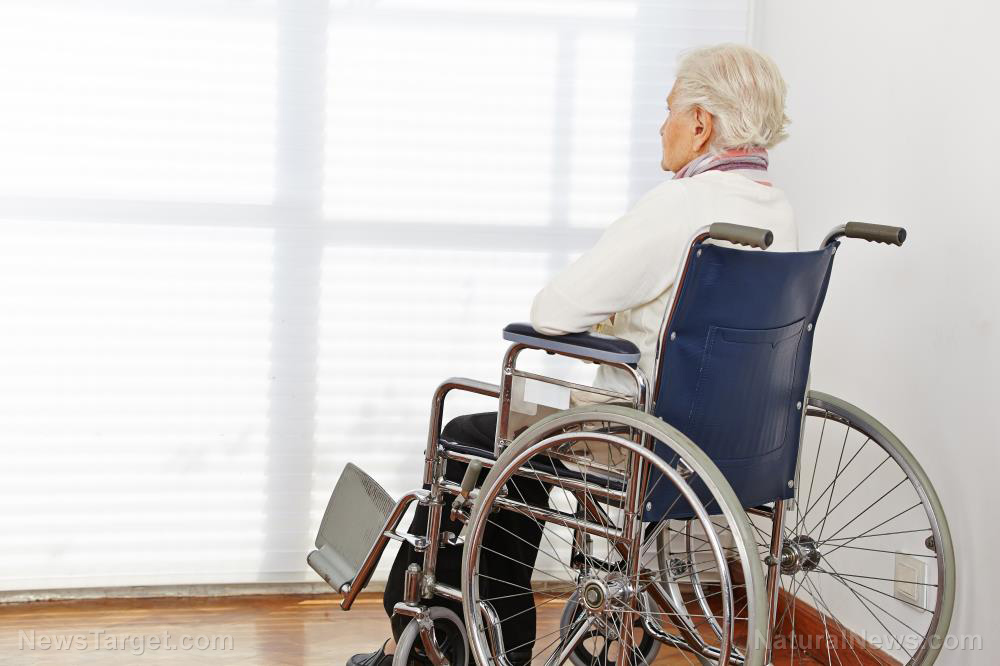Vitamin D eases mind AND body: Study finds a daily dose can relieve symptoms of IBS and accompanying anxiety
06/21/2018 / By Frances Bloomfield

Irritable Bowel Syndrome (IBS) is a common, chronic disorder of the large intestine that affects 10 to 15 percent of the world’s population. Currently, there is no known cure for IBS, so treatments usually focus on relieving the symptoms. Managing this condition typically entails studying one’s dietary habits, taking over-the-counter medication, and reducing stress. However, researchers from the University of Sheffield have discovered that supplementing with vitamin D may be effective in controlling the condition’s more painful symptoms.
In order to come to this conclusion, the investigative team analyzed seven studies linking vitamin D deficiency with IBS: three were randomized controlled trials, while the remaining four were observational studies. Past research has correlated low vitamin D levels with the increased chance of acquiring various gastrointestinal conditions, including colorectal cancer and inflammatory bowel disease. Inquiries focusing on the potential association between IBS and vitamin D deficiency is severely limited, however.
“The vitamin D/IBS link wasn’t spotted by medics or scientists. It came from patients,” said study co-author Bernard M. Corfe.
Although small in number, the studies that examined the vitamin D and IBS connection have all pointed towards said connection’s existence.
For instance, a study that involved 1,000 IBS patients revealed that as much as 75 percent of the population were suffering from inadequate amounts of vitamin D. By contrast, the other studies showed that IBS patients who’d dosed up on vitamin D were able to deal with their symptoms. One trial revealed that great amounts of vitamin D were able to normalize a woman’s bowel habits, subsequently easing the anxiety and depression brought on by her ailment. Yet another study that consisted of assessing 37 blogs of IBS patients found that as much as 70 percent of the patients benefited from vitamin D supplementation.
Mother Nature's micronutrient secret: Organic Broccoli Sprout Capsules now available, delivering 280mg of high-density nutrition, including the extraordinary "sulforaphane" and "glucosinolate" nutrients found only in cruciferous healing foods. Every lot laboratory tested. See availability here.
Moreover, analyses affirmed the prevalence and consistency of vitamin D deficiency among IBS patients throughout the world. “This study looked at all research reported throughout the world and found the deficiency was consistent irrespective of latitude or geography,” Corfe told HealthLine.com.
As for why vitamin D deficiency frequently occurs in IBS patients, the answer remains unknown. One theory has suggested that a person’s daily habits and diet may influence how much or how little vitamin D they get everyday. (Related: What is Irritable Bowel Syndrome & How Can It be Treated Naturally?)
Based on their findings, the investigators concluded that vitamin D supplementation could be beneficial to patients with IBS. Nevertheless, they added that more research needed to be carried out, specifically, larger-scale studies.
Dr. Jeffrey Baumgardner, who is unaffiliated with the study, stated that vitamin D could hold promise for people suffering from IBS, although its efficacy may still vary from person to person. “There is nothing that is 100 percent effective because everyone’s symptoms are somewhat different, so not everyone is going to respond to the same thing. It will help people, but it won’t help everybody. If you are someone with IBS, I think you should talk to your doctor about vitamin D, but don’t be discouraged if it won’t work,” he said.
This statement was echoed by Corfe, who remarked: “Even if the vitamin D doesn’t benefit the IBS, there are multiple health reasons to maintain good levels of vitamin D.”
As Corfe and his colleagues noted in their study, vitamin D plays an important role in maintaining good bone health, proper immune function, a healthy gut, and can even have an effect on one’s mental health. Thus, IBS patients are recommended to have their vitamin D levels checked.
Go to VitaminD.news for many more news stories and articles about vitamin D.
Sources include:
Tagged Under: health, IBS, irritable bowel syndrome, supplements, vitamin D, vitamin D deficiency




















